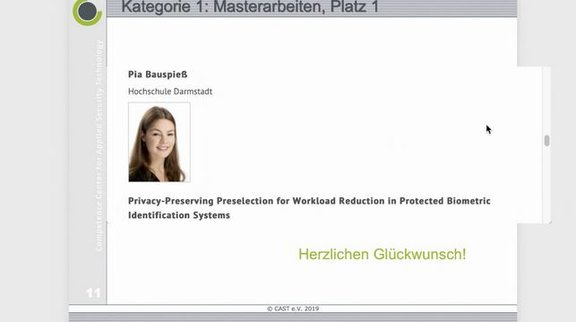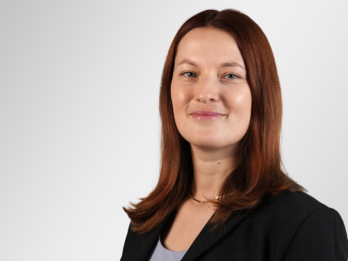News

ATHENE researcher receives award for dissertation
For her dissertation "From the Quest to Replace Passwords towards Supporting Secure and Usable Password Creation", Dr. Verena Zimmermann received one of the three prizes awarded by the Gesellschaft für Datenschutz und Datensicherheit e.V. (GDD) at the end of last year for young academics. Her work was done as part of the ATHENE project "Integrating Safety and Security Aspects in Secure Urban Infrastructures" in the SecUrban research area and one of its predecessor projects. Verena Zimmermann is a researcher in the Work and Engineering Psychology Research Group at the TU Darmstadt.
read more

ACM appoints ATHENE researcher as Distinguished Member
The Association for Computing Machinery (ACM) has named Prof. Max Mühlhäuser a „Distinguished Member“for his outstanding scientific contributions in computer science. Prof. Mühlhäuser is head of the Telecooperation Lab at the Department of Computer Science at TU Darmstadt, and coordinates the User-centered Security and Privacy (UCSP) research area in ATHENE.
read more
Best Paper for ATHENE researchers at WIFS 2021
ATHENE researchers from the Biometrics and Internet-Security Research Group at Darmstadt University of Applied Sciences received the Best Paper Award at the 13th IEEE International Workshop on Information Forensics and Security (WIFS 2021) for their paper "Differential Anomaly Detection for Facial Images". WIFS is the primary annual event organized by the IEEE Information Forensics and Security (IFS) Technical Committee of the IEEE Signal Processing Society. It aims to bring together researchers from relevant disciplines to discuss challenges, exchange ideas and share the state-of-the-art results and technical expertise in the ares of information security and forensics.
read more
Projekt EduMiDa mit Beteiligung von ATHENE-WissenschaflEduMiDa project launched with the participation of ATHENE researcherster*innen gestartet
In the EduMiDa project, ATHENE researchers from Fraunhofer SIT are working together with researchers from the Universities of Bremen and Münster to investigate how data protection and economic interests can complement each other in the deployment planning of employees. The technology partner is the software provider p.l.i. solutions.
read more
Award Ceremony CAST IT Security Award 2021
The CAST IT Security Award was presented for the 21st time a few days ago. Reviewers from CAST e.V. had looked through all the submissions in advance and assessed their quality. On this basis, a total of eight authors were nominated for the finalist workshop. Pia Bauspieß from Darmstadt University of Applied Sciences won among the Master's theses. Her thesis was written in the Biometric and Internet-Security Research Group at Darmstadt University of Applied Sciences, led by ATHENE researcher Prof. Christoph Busch.
read more
Three contributions by ATHENE researchers in the new Data Protection and Data Security
ATHENE data protection experts Dr Annika Selzer and Sarah Diel (LL.M.), both from Fraunhofer SIT, are (co-)authors of three articles published in the December issue of the journal "Datenschutz und Datensicherheit (DuD)". The scientists deal with data protection-compliant data protection metrics in an employment relationship as well as with potentials of anonymous data processing in a smart city environment.
read more
